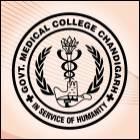- Home
- Courses
- Predictors
- Packages
- About
- Login
- Contact
- Near NRR Hospital, Thammenahalli Village, Bengaluru, Karnataka 560 090
- +91 8904151144
- cgmanagement00@gmail.com
Content Writer: Shubham S Nimje
Published on: Tue Jan 09 2024Updated on: Sun Jan 21 2024
Introduction: Bachelor of Homeopathic Medicine and Surgery (BHMS) stands as a beacon in holistic healthcare, encompassing the principles of homeopathy and a profound understanding of natural remedies. This comprehensive guide aims to illuminate the essence of BHMS, from its educational insights to admission procedures, top colleges, career prospects, and more.
BHMS is an undergraduate degree program that delves into the holistic principles of homeopathy. It equips students with knowledge of alternative medicine, emphasizing natural healing through individualized treatment plans and remedies.
Individuals interested in alternative medicine, holistic healing approaches, and those passionate about natural remedies and personalized patient care are well-suited for BHMS.
Aspiring students can pursue BHMS directly after completing their 10+2 education, embarking on a transformative journey into the field of homeopathic medicine.
Admission processes for BHMS programs typically commence in the early months of the year, with specific dates, application procedures, and entrance exam notifications released by respective institutions.
Candidates seeking admission to BHMS programs usually require a 10+2 qualification with Physics, Chemistry, Biology, and English as compulsory subjects. Specific eligibility criteria may vary across institutions.
Various entrance exams like NEET (National Eligibility cum Entrance Test), state-level medical entrance exams, or specific homeopathy entrance tests serve as entry gates for BHMS programs in India.
The BHMS curriculum covers subjects such as Homeopathic Pharmacy, Materia Medica, Organon of Medicine, Repertory, Clinical Medicine, and Surgery, allowing students to specialize in specific areas of homeopathy.
Renowned institutions offering BHMS programs include Nehru Homeopathic Medical College and Hospital (Delhi), National Institute of Homeopathy (Kolkata), Dr. B. R. Sur Homoeopathic Medical College and Hospital (Delhi), among others.
Students aspiring to pursue BHMS internationally can explore institutions in countries like Germany, Switzerland, United Kingdom, and Canada, known for their homeopathy education and practice.
After BHMS, individuals can opt for certificate or diploma courses in various homeopathic specialties, expanding their knowledge and expertise in specific areas of interest.
Those aiming for advanced studies can pursue MD in Homeopathy, allowing for specialized training and research in homeopathic medicine, further enhancing career prospects.
Qualified BHMS graduates find employment opportunities in private homeopathic clinics, hospitals, wellness centers, pharmaceutical companies, research organizations, and educational institutions.
Government opportunities in homeopathy include positions in government hospitals, research institutes, public health departments, and teaching positions in government colleges.
BHMS programs often encourage students to engage in research projects exploring homeopathic remedies, clinical trials, case studies, and efficacy studies to contribute to the evidence base of homeopathy.
Students and professionals in BHMS often publish research findings and articles in homeopathic journals and publications, sharing insights, case studies, and advancements in homeopathic medicine.
BHMS graduates actively participate in organizing health camps, awareness programs, and seminars in communities, educating people about homeopathic remedies and promoting preventive healthcare.
BHMS professionals contribute to rural healthcare by providing accessible and affordable homeopathic healthcare services in underserved areas, addressing healthcare disparities.
BHMS graduates advocate for the integration of homeopathy into public health policies, emphasizing the role of integrative medicine in offering comprehensive healthcare solutions.
BHMS professionals engage in discussions and contribute to the development of regulatory frameworks and standards for homeopathic practice, ensuring quality and safety in homeopathic treatments.
With advancements in technology, BHMS practitioners use digital platforms and telemedicine for consultations, reaching a broader patient base and providing remote healthcare services.
Homeopathic software and data analysis tools aid BHMS practitioners in case analysis, remedy selection, and maintaining patient records, enhancing efficiency in practice.
CPD programs in BHMS include attending seminars, workshops, and conferences, keeping practitioners updated with the latest developments, research, and advancements in homeopathy.
BHMS professionals often enroll in specialized courses or certifications to expand their knowledge in niche areas of homeopathy, such as pediatric homeopathy, dermatology, or psychiatry.
BHMS graduates collaborate with practitioners from conventional medicine, fostering an environment of mutual learning, sharing expertise, and exploring complementary approaches to patient care.
Establishing referral systems between homeopathy and conventional medicine practitioners ensures comprehensive patient care, offering patients a range of treatment options for their health concerns.
BHMS professionals emphasize the role of environmental factors, lifestyle modifications, diet, and mental well-being in achieving and maintaining optimal health and well-being.
In consultations, BHMS practitioners educate patients about lifestyle changes, stress management, and preventive measures to promote holistic wellness beyond just symptomatic relief.
The future of homeopathy includes a focus on evidence-based practices, research-driven approaches, and standardized protocols to enhance credibility and acceptance.
Advancements in personalized medicine and integrative healthcare models are expected to influence homeopathic practice, tailoring treatments to individual constitutions and integrating multiple therapeutic approaches.
A: BHMS graduates are trained in homeopathy and legally allowed to practice homeopathic medicine. However, practicing allopathic medicine without appropriate licensing is not permitted.
A: BHMS graduates can work as homeopathic practitioners, researchers, educators, consultants, or pursue further studies in specialized areas of homeopathy.
A: BHMS degrees from recognized institutions hold credibility globally, allowing graduates to practice or pursue further studies in countries that acknowledge homeopathic medicine.





Copyright © 2023 Career Guidance Management
Design and Developed by CGM